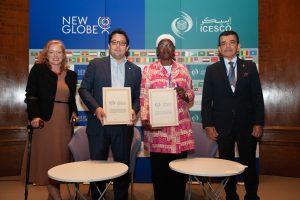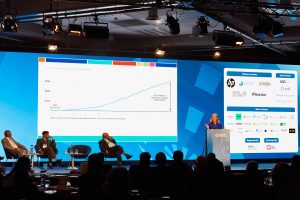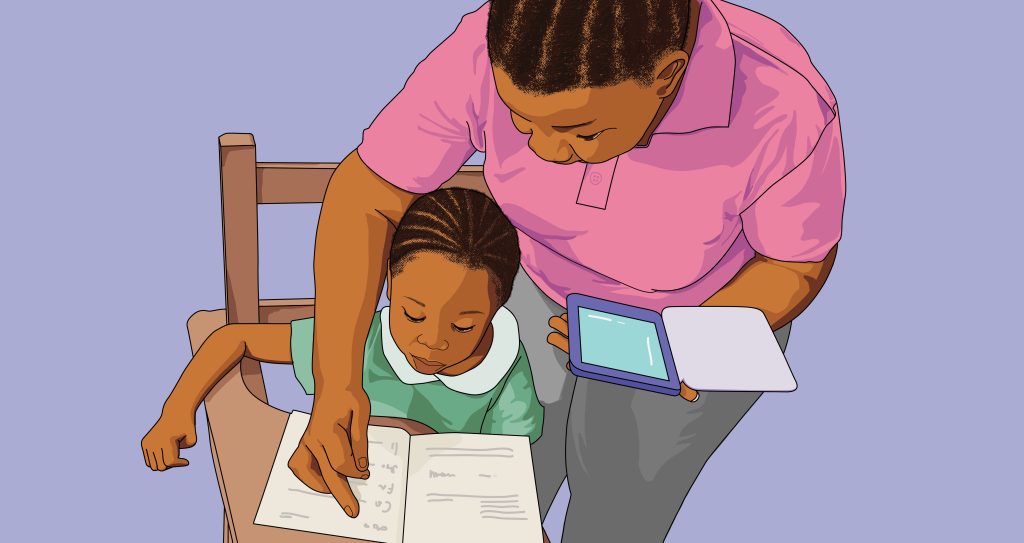Why treating girls equally delivers for everyone
Why treating girls equally delivers for everyone
The COVID pandemic has had terrible consequences across communities, across borders – and across generations. Young people may be less likely to fall seriously or fatally ill from the virus, but it has nevertheless affected them badly too. And that is especially true for girls and their education.
Even before it struck and forced the closure of schools around the world, more than 130 million girls who should have been in education were not, according to the Malala Fund.
As most schools reopened in 2021, those who had been attending should have returned, joined by millions more previously excluded from learning.
Instead, the opposite has happened. Many girls who were in school have not gone back – UNESCO, the UN’s education body, estimates that could be up to another 11 million. COVID has increased the challenges of education access for girls.
The reasons are familiar. Early marriage, pregnancy, child labour, poverty and general bias against educating girls are all factors.
This despite the overwhelming evidence that educating girls benefits everyone – girls themselves, their societies and their nations.
A single additional year in school can lead to a 25% increase in wages in later life for girls, so greater wealth – and therefore opportunity – for them and their families.
The cost of girls failing to complete their education is between US$15 trillion and US$30 trillion in lost lifetime productivity and earnings for countries estimates the World Bank.
And the Brookings Institution stresses the positive impact girls’ education has on tackling climate change.
The list of benefits from educating girls goes on and on and on. This year’s International Day of the Girl Child is therefore another opportunity to give urgent support to getting more girls into school, as well as a chance to celebrate their achievements when education systems enable gender parity of opportunity.
At NewGlobe, we support education systems using an approach that has gender parity built into their design.
Gender-sensitive instruction means NewGlobe commissions all of its artwork and creative stories in textbooks and workbooks to ensure equal visibility of male and female characters, and specifically represent female characters in powerful, unconventional roles.
While gender-sensitive school management includes ensuring that girls are given school leadership roles through appointments of Head Girls and Prefects.
Teachers are retrained to call on both boys and girls in the classroom. As fewer girls than boys usually tend to volunteer in class, teachers are trained to practice more cold calling to ensure equal participation.
This year’s celebrations under the theme “Digital generation. Our generation” calls for equal access to the internet and digital devices for girls and targeted investments to facilitate opportunities for girls to safely and meaningfully access, use, lead and design technology.
At NewGlobe we integrate these opportunities into the programming we support. It’s why we have fostered partnerships such as coding programs designed to narrow the gender gap of women in STEM.
As signatories to the Women’s Empowerment Principles, we are committed to gender equality in the workplace as well.
Female teachers and school leaders provide role models within the classroom and community.
This holistic approach is an integral part of every NewGlobe program. And it works.
In Liberia, a girl is more likely to be married by 18-years-old than to know how to read and 63% of girls between the ages of 15-24 are illiterate.
Our support for the Liberian Government’s LEAP program – where NewGlobe is the biggest partner from the non-state sector – includes ensuring girls have the same opportunities to learn and thrive as boys.
Unlike in many public school systems, Pregnant girls are allowed and encouraged to stay in NewGlobe- supported schools and young first-time mothers are actively encouraged to return to classrooms by school and community leaders.
The outcomes are clear; historically, in Liberia, the poorest boy reader was scoring higher than the best girl reader. As a result of the Ministry of Education programme in NewGlobe- supported schools, 5th-grade girls’ average performance on reading fluency increased by over 27 words per minute. Once lagging by 10 words per minute, girls now outperform boys.
The results are the same in Nigeria. In Edo State, a report into the Government’s flagship EdoBEST learning transformation program in its very first term showed that Primary 3 students scored six percentage points higher in maths and seven percentage points higher in English Literacy. Remarkably, that increase in results was driven almost entirely by girls, who not only outperformed boys in EdoBEST schools, but also both boys and girls in schools outside the program.
In Lagos State, where the EKOEXCEL basic education program is running in more than 1,000 primary schools, students advanced twice as fast in numeracy and three times as fast in literacy as their counterparts in other schools – both girls and boys. But those achievements were built on a foundation of EKOEXCEL girls being 8% more likely to attend school than girls in classrooms outside the program. EKOEXCEL has not only strongly improved learning outcomes, it has done so while bringing more girls into school.
The state and national governments transforming their public education programs with the support of NewGlobe are committed to delivering the same opportunities for girls as for boys. They recognise that women and girls possess one half of the world’s human potential and that it is to the detriment of their societies not to fully develop that potential. Both individuals and their communities can only benefit from improved education outcomes for women and girls.
As we mark this year’s International Day of the Girl Child, we call on others to ensure that there is gender parity equity in school systems to ensure that the strongest foundation is being built for future growth.



